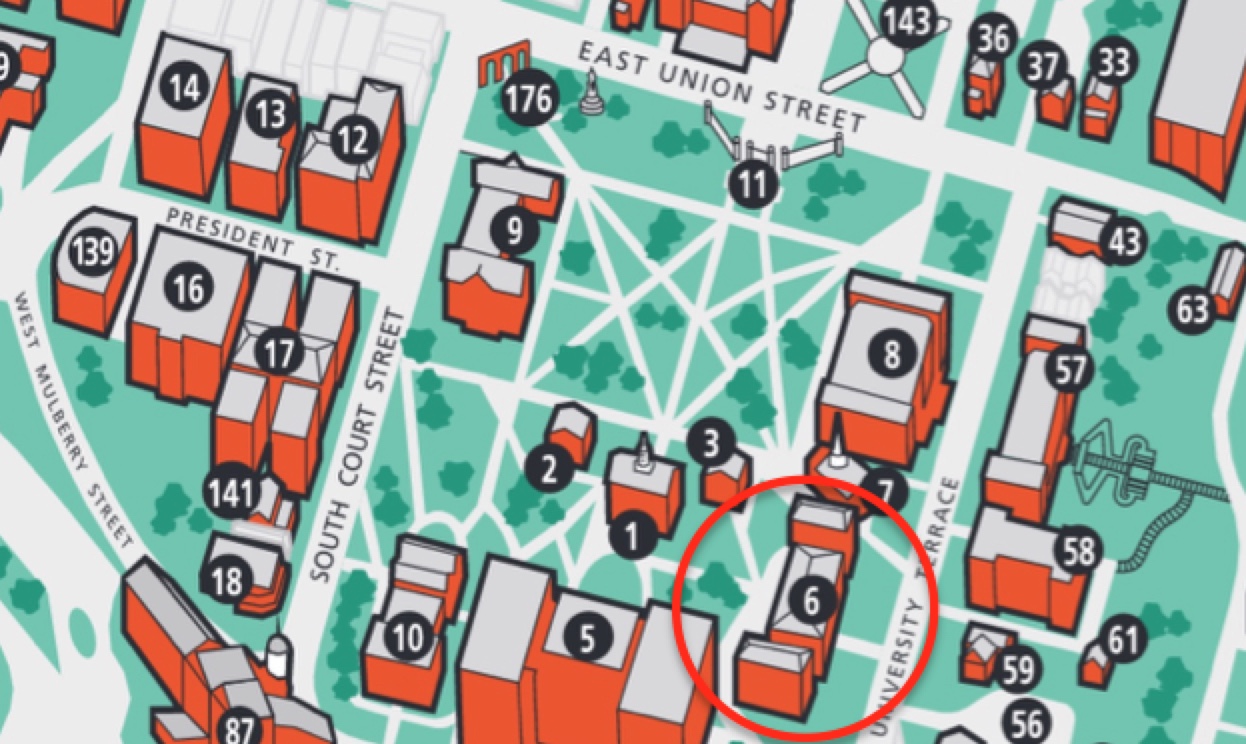|
ENG 1510
Dr. Edmond Y. Chang Download the course policies and syllabus (PDF).
"What would America be like if we loved black people as much as we love black culture?"
"First sentences are doors to worlds."
|
ACCORDING TO George Lipsitz, popular culture creates "conditions of possibility, they expand the present by informing it with memories of the past and hopes for the future...For all of their triviality and frivolity, the messages of popular culture circulate in a network of production and reception that is quite serious." Our course will take up this provocation and use popular culture (primarily from the US) as political and vernacular theory, as strategies for thinking critically about the world around us, specifically about keywords like race, gender, sexuality, disability, class, environment, and technology. This class will engage cultural studies, close reading, and rhetorical analysis, using pop culture as the occasion for academic inquiry, research, and writing. A REQUIREMENT for this class is a well-developed curiosity about the world, about the culture we live in, and about the cultural productions we imagine, produce, and consume. In other words, this class is about reading, critiquing, and analyzing our culture through different mediums and texts. We will engage different practices enjoying and analyzing writing and other media, as well as develop feminist, anti-racist, and queer strategies, habits, and perspectives of reading, thinking, and writing. Foremost, we will read, write, and research with pleasure and for pleasure. And we will analyze, write about, and deploy popular culture as theory, as dramatizing the concerns, wonders, struggles, and politics of lived life and experience. WE WILL spend the quarter asking and addressing difficult, challenging, and sometimes discomforting ideas, questions, and topics, focusing on different identities, bodies, histories, desires, experiences, and even struggles and violences. Whether on the page, screen, on campus, or in the community, we will explore and engage multiple perspectives, levels of familiarity with the material, and heady and heartfelt responses. In other words, our class will be a safe, respectful, but not necessarily comfortable space. While pushing boundaries and comfort zones are essential to critical thinking, making connections, and intellectual and personal freedom, see me with concerns and queries, for reasonable accommodations, and for further resources on campus.
ENG 1510 Course OutcomesThe Ohio University Composition program holds that writing and reading are significantly interdependent and always emerge in reciprocal social interactions. These social interactions—and the conventions that enable and constrain them—vary among different communities of writers or disciplines and are always mediated by genres. We also hold that writing both influences and is influenced by identity, and that writing communities and their genres enable and constrain some identities while disallowing others, which requires writers to make choices to conform to or resist those identities. Finally, we affirm that writing occurs in many different modes (print, visual, audio, digital, etc.) and emerges through ongoing processes of invention, production, collaboration, and revision. Specifically, our course goals include (the formal ENG 1510 outcomes are bolded and full outcomes are here:
• Enter Conversations and Communities of Writers |
"You must write, and read, as if your life depended on it."
Required Course Texts & Materials
• Greene & Lidinsky, From Inquiry to Academic Writing (5th Edition)
|
|
Course Requirements
Presentation & Roundtable (20%) Download the course policies and syllabus (PDF).
|
Requirements & GradingYour grade should not be the sole exigence or motivation for this class. It is the hope of the course that you walk away from our class with something more. Find some pleasure and some edification and some knowledge from this class (or any class really) and success is usually not far behind. With that in mind, your grade will be a reflection of engagement, effort, close reading, critical thinking, writing, and participation. Pop Culture Presentation and Roundtable (20%) You will be a required to sign up in small groups for an oral presentation and roundtable during the course of the semester. For your presentation, you will collaboratively curate a pop cultural artifact for the week’s keyword, summarize and articulate two or three main points from the week’s scholarly or critical text (as assigned), generate a critical question connecting the theory to the artifact, and contribute to in-class and online discussion for the week. You must have your artifact approved by the instructor. Curations should have a group presentation plan, a substantive framing post, may include media, and each group member must contribute to the discussion and post. Short Papers (30%) The majority of writing you will complete will be a number of short, analytical, and academic papers. These papers rehearse a range of genres, rhetorical situations, course goals, and engage the 1510 outcomes. You will write a literacy narrative, an academic summary, a close reading, a brief annotated works cited, a research proposal memo, a creative response, and a self-assessment cover letter. They will be graded on clarity, focus, coherence, whether they satisfy the assignment, and on your ability to concisely formulate arguments. You will also have the opportunity to improve one paper grade through careful revision. Final Paper/Project (20%) By the end of the semester, you will complete a Final Project that integrates what you have read, explored, and written about in your previous papers, that draws on specific terms, concepts, or issues from the class, and that articulates the critical value of popular culture. The project asks you to make connections and to create an argument across different kinds of evidence and added research. Your final project can be a traditional research paper, a media production (which includes a substantive analytical component), or a hybrid of the two. Participation and Preparedness (30%) Preparedness and participation forms a large component of your final grade. It is essential that you prepare for class, attend class, and participate. Missing class or participation may seriously compromise your ability to do well in this class. Moreover, negative participation will hurt your participation grade. Participation is determined by 1) your respectful presence in class and interactions with me and others, 2) your willingness to discuss, comment, and ask questions, 3) your preparation for class, which includes having the required materials and doing all of the assigned reading or work for class, 4) your engagement and collaboration in group work, presentations, office hours, and course events, and 5) your care and use of the class Blackboard or "Bb"—bookmark the address, check regularly, comment as required, and think of the blog as an extension of class: https://blackboard.ohio.edu/ultra/courses/_578450_1/cl/outline |
"I’ve overheard your theory ‘nostalgia’s for geeks’ / I guess sir, if you say so, some of us just like to read /
One second I’m a Koons, then suddenly the Koons is me / Pop culture was in art, now art’s in pop culture in me."
"Do work that matters. Vale la pena."
|
|
|
AttendanceAttendance is required. If you are absent, you miss the explanation of an assignment, the discussion of a reading, the chance to participate, and overall, the class as a community of learning. Also, you are expected to be in class on time. In the first minutes of class I may make important announcements, establish the agenda for the day, begin immediately with an important lesson, or field questions. If you come in after we start class, even by only a few minutes, you are late and will be mark as such. Chronic or conspicuous attendance problems will negatively affect your overall participation grade for the class.
Moreover, absences for more than 14 class sessions (50% of class time or more) will result
in a failing grade regardless of reason. All absences are your responsibility. If you
know you are going to miss class, please let me know (via email) as soon as possible and
make any necessary arrangements. When you do miss class, always find another student to
get class notes or see me during office hours in order to make up missed work in a timely
manner. You are always responsible for all material covered during your absence.
|
|
|
MLA Paper Formatting 1) 1" margins top, bottom, left, and right on each page. 2) Single-spaced block header on the first page only with your name, date, course, my name:
Student Name 3) Short, appropriate title. 4) Print single-sided. Papers are double-spaced with paper page numbers in the upper right hand corner; no extra space between paragraphs. 5) Standard Times Roman Font, 12 point only. 6) Correct MLA citation and bibliographic format. A paper turned in without a bibliography automatically fails and will be returned with no comments.
|
Assignment FormatAll papers must be typed or produced on a word processor. All documents should be saved in Microsoft Word format (or if necessary Rich Text Format). All papers must follow the manuscript format outlined by the assignment. Unless instructed otherwise, all papers must use MLA citation and documentation conventions. All papers must be neatly printed (in black), single-sided, stapled in the top, left-hand corner if necessary, and not be three-hole punched. Papers that do not follow these format guidelines will not be accepted. They will be returned unread to you. Papers will be regarded as late until they are resubmitted in the proper format. Always make a backup copy of every paper you turn in, lest you be one of the unhappy people whose paper is eaten by the computer. You may even want to take the precaution of e-mailing your paper to yourself as an attachment during the drafting process and certainly before you exit the document and leave the computer. Or you may want to invest in cloud-based file storage like OneDrive (which all OU students have already have access) or DropBox.
Evaluation RubricOver the course of the semester, your assignments will receive feedback and comments that will identify what you are doing well and what still needs improvement. Your grades assess your fulfillment of the assignment, the quality of work, detail, analysis, and argumentation, overall effort, and finally, style, polish, and risk taking. Consider the following evaluation rubric as signposts or a kind of legend to your progress and evaluation:
• Outstanding (A/A+): Offers a very highly proficient, even memorable demonstration
of the trait(s) associated with the course or assignment goal(s), including some
appropriate risk-taking and/or creativity. |
Late Assignments All assignments must be done completely and turned in on time. Late assignments will be penalized a letter grade for every day that they are late. So, if your essay is late by one day and you received a B- for your work, then your final grade would be a C-. Moreover, I will not comment on late work. However, you still need to complete late work or you will receive a zero. If you miss the due date of a paper, you must notify me and make arrangements to get the paper to me as soon as possible. Unless previously arranged, I DO NOT accept assignments via email. Remember that a paper has not been officially handed in until it is in my hands. Never turning anything in late is always the best policy. |
|
Contact Dr. Chang
Office: Download the course policies and syllabus.
|
Finding HelpMy office and office hours are listed in the left sidebar. I am available during that time or by appointment (which can be held virtually). I encourage you to come see me early in the quarter even if it is just to talk about the class, about the assignments, or about school in general. I may ask you to meet with me when I think a conference would be useful. My office is located on the third floor of Ellis Hall (east of Alden Library), Room 331.

Email is the best way to contact me. I will do my best to answer your emails and Bb posts, usually within twenty-four hours. If there is an emergency and you need to reach me, please contact the main English office in 201 Ellis Hall. Furthermore, when time permits, I will supplement my office hours with virtual hours via Google Talk (nickname: EDagogy); if I am logged in, during reasonable hours, you are more than welcome to discuss the class or ask questions. Please, when you initiate an IM conversation, please say hello and identify yourself to me; also, be patient because my responses may not be immediate. You can find additional writing and academic help at the Student Writing Center (SWC) on campus, a good resource for this class and other classes. The SWC is located in the Academic Advancement Center (AAC) on the second floor of Alden Library and offers a variety of services including help with reading, papers, brainstorming ideas, and research. See https://www.ohio.edu/uc/aac/swc.cfm to make an appointment and for more information.
Further resources, both on- and off-campus can be found on the Links page of the course website:
http://www.edmondchang.com/courses/1510/links.html.
|
|
|
|
AccommodationsAny student who feels they may need an accommodation based on the impact of a disability should see me or contact me in the first week of class to discuss their specific needs and provide written documentation from Student Accessibility Services. If you are not yet registered as a student with a disability, please contact Student Accessibility Services at 740-593-2620 or visit the SAS office in 348 Baker University Center. The SAS website is: https://www.ohio.edu/uc/sas/index.cfm.
COVID-19All students are required to abide by the university’s pandemic strategies and protocols, which are updated and outlined: https://www.ohio.edu/coronavirus. Please follow all guidelines and recommendations regarding masking, social distancing, testing and symptom reporting, and vaccination. If you have physical or mental health concerns, changes in employment, housing, or responsibilities, or face other challenges, insecurities, or problems, please seek out Ohio’s health services: https://www.ohio.edu/wellness/student-resources, counseling center: https://www.ohio.edu/student-affairs/counseling, or see me for further help, resources, or accommodations.
Academic DishonestyAll students are required to uphold the highest academic standards. Plagiarism, or academic dishonesty, is presenting someone else's ideas or writing as your own. In your writing for this class, you are encouraged to refer to other people's thoughts and writing--as long as you cite them. Many students do not have a clear understanding of what constitutes plagiarism, so feel free to ask questions at any time. For our class, plagiarism includes:
• a student failing to cite sources of ideas If you have any doubt about how to cite or acknowledge another's writing, please talk to me. Any plagiarism or academic dishonesty will result in failure of an assignment or of this course. It is always better to be safe than sorry. Please review the Ohio University's Academic Misconduct page at https://www.ohio.edu/communitystandards/academic/students.cfm
Harassment, Discrimination, and Sexual Misconduct
Ohio University and this course are committed to a safe, supportive, and inclusive learning environment.
Title IX makes clear that violence and harassment based on sex and gender is a Civil Rights offense
subject to the same kinds of accountability and support applied to offenses against other protected
categories such as race, national origin, and so on. As your instructor, I am a mandatory reporter
and am required by law to share with the University any information regarding sexual misconduct or
information about a crime that may have occurred on campus. For more information about policies
and resources or confidential reporting options, see the Office of University Equity and Civil
Rights Compliance:
https://www.ohio.edu/equity-civil-rights/
or the Division of Student Affairs
page on Student Conduct & Community Standards:
https://www.ohio.edu/communitystandards/process/sexualassault.cfm.
|
"Imagination is more important than knowledge."
"An idea that is not dangerous is unworthy of being called an idea at all."
"The point about pop culture is that so much of it is borrowed. There’s very little that's brand new.
Instead, creativity today is a kind of shopping process—picking up on and sampling things form the world
around you, things you grew up with."
|
|
|
© 2021 Edmond Chang. All original material. All rights reserved. Contact the webmaster of this site. These pages are best viewed with Mozilla Firefox or Google Chrome. Open your browser to the largest viewable area. These pages are hosted by ED(MOND)CHANG(ED)AGOGY, the academic, professional, and creative website of Edmond Y. Chang. |
|


















